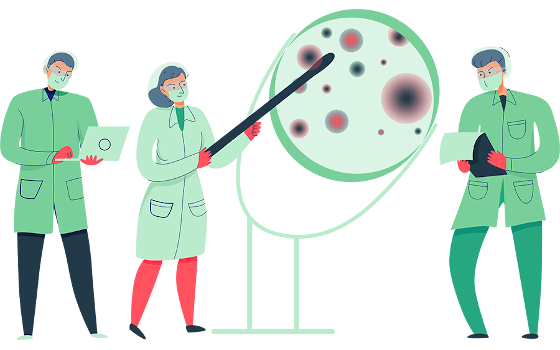Scientists on Standby, developed by specialist Life Science marketing agency BioStrata, is looking for qualified scientists specialising in reverse transcription-Polymerase Chain Reaction (rt-PCR), immunoassays and Good Laboratory Practice (GLP). The portal will provide government bodies and diagnostic testing laboratories with a database of UK-based volunteers, grouped by location for easy regional allocation, who have the capacity to offer their expertise and experience to help in the fight against COVID-19.
"During this unprecedented time, we have seen incredible dedication, collaboration and innovation within our industry. Many organisations and teams are coming together to overcome the medical and logistical challenges presented by COVID-19," said Clare Russell PhD, co-founder and Managing Director of BioStrata. "Within our team, we have a number of ex-researchers and clinical scientists and we were keen to find a way that we could contribute and make a difference. On consultation with industry partners and colleagues, we felt that Scientists on Standby was a resource that would be required and welcomed."
In an effort to help battle this pandemic, the life science industry has rallied together to develop, produce and supply more testing kits and reagents. These will be needed so that healthcare providers and government bodies can test a large proportion of the population and better understand how COVID-19 is spreading. Such widespread testing will be an essential tool for managing the risks posed by the disease and saving lives, as well as directing government policy on the release of social isolation initiatives. However, this rapid surge in testing demand will likely leave a gap in terms of the qualified resource able to process samples and run assays over the coming weeks and months.
"We predict that the industry could soon be in need of experienced scientists who could help with COVID-19 screening and test processing, to increase the volume of diagnostic testing being performed," added Paul Avery PhD, co-founder and Managing Director of BioStrata. "An expanded testing capacity will enable the rapid screening of both diseased people and those who have been exposed to the virus but remain asymptomatic, essentially containing the spread of COVID-19. In many ways, we hope that we won’t need to request the help of those on the standby list – but we’d rather have one and not need it than the other way around."
To add your name to the growing list of volunteers at Scientists on Standby, please visit:
https://www.scientistsonstandby.com
About BioStrata
BioStrata is a specialist marketing agency working in the life science sector. Founded by Paul Avery PhD and Clare Russell PhD in 2014, the company’s growing team with offices in Cambridge (UK) and Boston (US) includes a significant number of people with deep scientific experience and knowledge, such as PhD-qualified scientists and others who spent time in laboratories at the start of their careers. BioStrata is a fully integrated agency offering strategy, branding and message development through to content creation, creative services, digital marketing and public relations. Current clients include companies working in life science research tools, diagnostics, lab automation, biotechnology, drug discovery and pharmaceutical sectors. www.biostratamarketing.com.
